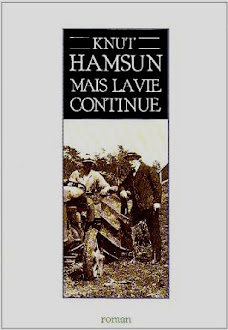quarta-feira, 21 de junho de 2017
Escuridão, segundo Alistair MacLean
Uma das minhas leituras de Verão é o regresso ao clássico de aventura no mar (ou no gelo) com crime incluído que é a 'receita' de Alistair MacLean, se é permitido falar de receita àcerca de quem escreve tão bem. O escocês Alasdair MacGill-Eain bem merecia um Nobel ( ou se calhar não...) pela quantidade de livros fantásticos, humor refinado, língua inglesa trabalhada com grande invenção e mestria: Os Canhões de Navarone, Ice Station Zebra (obra prima), When Eight Bells Toll, Where Eagles Dare, Bear Island...
Muitos deram grandes produções cinematográficas, mas nos filmes só resta o enredo (adaptado!); a língua inglesa, os diálogos intrincados e cheios de inuendos, as descrições, a vasta cultura de MacLean têm de ser lidas, e no original.
Depois de um início caótico, quase indecifrável, entrei em velocidade de cruzeiro no "When Eight Bells Toll" (trad. "Quando os Oito Sinos Tocam"); mete espionagem, tráfico, corrupção, barcos criminosamente afundados, um grego residente no seu iate que lembra o Rastapopoulos de Tintin e o seu 'Shéhérazade' - podre de rico, velho casado com jovem actriz mundana depois da primeira mulher misteriosamente morta, recepções de gente da alta a bordo com muito álcool a rodar. Tudo nas belas Hébridas, ao largo de Oban, na Escócia profunda. Parece James Bond ? Talvez, mas muito mais bem escrito.
A ameaça mortal surge logo de chofre :
"Very slowly, very steadily, I raised both hands, palms outward, until they were level with my shoulders. The careful deliberation was so that the nervously inclined wouldn't be deceived into thinking that I was contemplating anything ridiculous, like resistance. It was probably a pretty superfluous precaution as the man behind that immobile pistol didn't seem to have any nerves and the last thought I had in my head was that of resistance. The sun was long down but the faint red after-glow of sunset still loomed on the north-west horizon and I was perfectly silhouetted against it through the cabin doorway."
O capítulo 4 arranca assim:
"As the saying goes in those parts, it was as black as the earl of hell's waistcoat. The sky was black, the woods were black, and the icy heavy driving rain reduced what little visibility there was to just nothing at all. The only way to locate a tree was to walk straight into it, the only way to locate a dip in the ground was to fall into it."
Um escuro bem pintado. Nenhuma foto ou pintura conseguia tal...
A escuridão é recorrente, pouco adiante durante um voo de helicóptero à procura de abrigos de barcos na costa oeste, avista-se um 'loch'.
"It looked dark and deadly and dangerous. The shores were black and rocky and precipitous and devoid of any form of vegetation at all. The four islands strung out in a line to the east were a splendid match for the hospitable appearance of the shores. In the far distance the northern and the southern shores of the loch came close together and vanished in a towering vertical cleft in the sinister brooding mountains. In the lee of the islands the loch was black as midnight but elsewhere it was a seething boiling white, the waters wickedly swirling, churning, spinning in evil-looking whirlpools as it passed across overfalls or forced its way through the narrow channels between the islands or between the islands and the shore. Water in torment. In the Beul nan Uarnh * — the mouth of the grave — between the first two islands the rushing leaping milk-white waters looked like floodwater in the Mackenzie river rapids in springtime, when the snows melt."
O filme, dizem, foi um flop; mas com Anthony Hopkins (muito jovem) no papel principal, com a sua dicção, fleuma e olho azul, sinto-me tentado a mandar vir ;)
Contracena com quem ?
Ena !
------------------------------------
* gaélico, mouth of the grave
Subscrever:
Enviar feedback (Atom)




Sem comentários:
Enviar um comentário